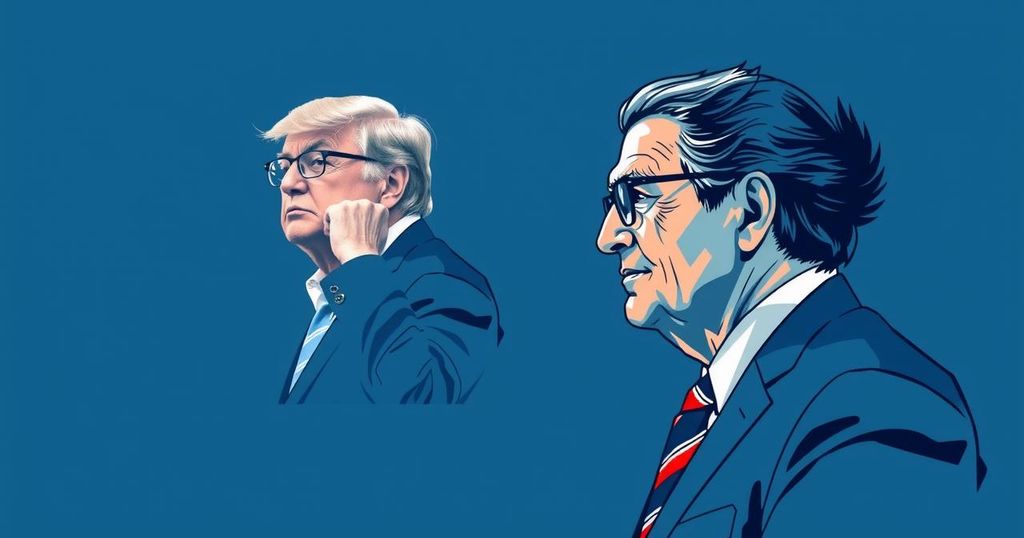Reflections on the Election: A Journey Toward Hope and Engagement

The article chronicles the author’s emotional and political journey during the recent election, detailing their hopes for Kamala Harris’s campaign amid broader uncertainties, the significance of engaging in democracy, and a call to fight for the fundamental values of justice and identity as America faces crucial decisions ahead.
On election night, I, like many Americans, found myself anxiously observing John King’s portrayal of the electoral map, a mosaic of red and blue, and contemplating the validity of my cynicism regarding the American electorate. I had remained resolute in my election predictions, harboring minimal hope for Kamala Harris’s presidential campaign while still striving to maintain a Democratic majority in the House. Throughout the electoral cycle, I engaged in campaign efforts, participating in phone and text banking, while remaining acutely aware of the dynamics surrounding the elections.
From early on, I anticipated a Trump victory, attributing it to fluctuating economic conditions affecting the everyday lives of Americans. Through my interactions with voters during phone banking, a recurring theme emerged regarding the economy—a universal concern that transcended individual identities. I contend that Harris was not afforded a fair opportunity to campaign, limited to a couple of months for fundraising and grassroots efforts, appearing more as a strategic tool to influence down-ballot races rather than a genuine presidential candidate.
Casting my vote for Kamala Harris was profoundly meaningful, symbolizing the realization of dreams both personally and collectively. It was an empowering moment that fulfilled my desire for representation, allowing young girls across America to witness the possibilities of diverse leadership embodied in Harris. This election resonated with me deeply, as I developed an enduring love for America since my arrival at the age of one and continuously nurtured hope throughout my long journey toward citizenship.
My political involvement stemmed not from mere curiosity but from necessity; I recognized that transformative changes must begin with local government engagement. Despite trends of voter apathy among younger demographics, I eagerly anticipated the chance to vote, cherishing the privilege of supporting a candidate who embodied hope for the future. Though Trump’s presidency may not have directly impacted my daily existence, I remain acutely aware of the systemic challenges faced by marginalized groups, such as women and DACA recipients, grappling with uncertainty under the looming shadow of his leadership.
As the night unfolded on November 5, the sobering realization set in that Harris’s optimistic vision appeared to fade. Conversations among peers shifted towards despair, with many contemplating emigration. However, unlike them, I had made a solemn oath in April to uphold and defend the Constitution against domestic and foreign threats, cementing my loyalty to the very institutions that define our state.
I have retained my commitment to these institutions, even as they often seem to tokenize diverse experiences. I acknowledge a degree of naivety in my perspective, yet without hope, the notion of change becomes unimaginable. Beginning January 20, America stands at a crossroads: whether to relinquish faith in its foundational institutions or to embrace a fight for democracy and justice, a struggle intertwined with American identity that transcends political affiliations.
The fight for the nation’s soul must persist, as we collectively navigate the complexities of our democracy. It is imperative that we, as citizens, strive to uphold faith in our institutions and advocate for the values that underpin our society. Through active engagement and unwavering hope, we can pave a path toward a just and equitable future for all.
This article reflects the author’s personal experience and emotional journey during the recent election cycle, highlighting the interplay between personal hopes and broader political realities. It encapsulates the struggles faced by minority candidates in campaigns and underscores the importance of voter engagement, particularly among younger populations. Additionally, it sheds light on the socioeconomic issues impacting the electorate, as well as the resilience required to navigate political uncertainty.
In conclusion, the author’s experience encapsulates the profound emotional connection individuals have to democratic participation, particularly in a climate of uncertainty. By actively engaging in the political process and casting their vote, the author embodies the hope that is essential for driving change. As America embarks on a new phase beginning January 20, it faces pivotal decisions regarding its institutions and fundamental values. The ongoing fight for democracy and justice must be a collective endeavor for all citizens, determined to uphold the principles that define American identity.
Original Source: dailyemerald.com








